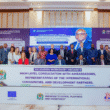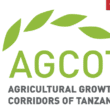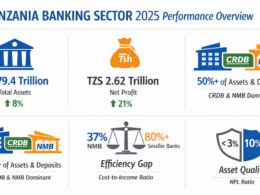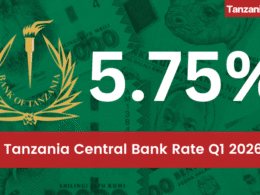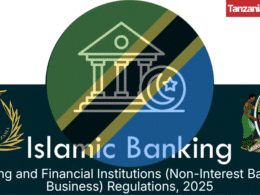TanzaniaInvest conducted an exclusive interview with Mizinga Melu, CEO of National Bank of Commerce (NBC), the longest serving bank in Tanzania. TanzaniaInvest and Mrs. Melu discussed the Tanzanian banking sector, NBC’s focus and positioning, innovation and development, corporate responsibility and Foreign Direct Investment (FDI).
TanzaniaInvest.com: You have recently been appointed MD of NBC, one of the largest banks in the country. From the experience gathered so far, how in your opinion Tanzania’s banking sector differs from other African banking markets familiar to you?
Mizinga Melu: Fortunately Tanzania and Zambia operate under similar conditions, so there hasn’t been much difference moving from one market to the other, however some of the more noticeable differences include:
-The Tanzanian banking sector has approximately 50 registered banks and financial institutions whereas Zambia has approximately 20, which means more competition in Tanzania.
-Zambia’s banking sector was also deregulated around the same time as Tanzania, which means that most of the institutions operating in the country have less than 25 years experience in the industry. The market is still young and offers numerous opportunities for existing organizations and new entrants alike.
-The implementation of the credit-referencing bureau is a great move, as it will allow banks to share credit information and evaluate who is eligible for credit facilities and who is not. This will grow the industry, as it will allow many more Tanzanians access to more affordable loans.{xtypo_quote_right}The Tanzanian economy is well diversified, with agriculture and communication being the major player in GDP contribution. In addition to that, oil and gas will be a game changer for the economy{/xtypo_quote_right}
The Tanzanian economy is well diversified, with agriculture and communication being the major player in GDP contribution. In addition to that, oil and gas will be a game changer for the economy. However, it’s gloomy to see that lending to the agriculture sector bears less appetite compared with other sectors such as mining, trade and construction. The Zambian economy is highly dependent on mining.
TI: There are now fifty banks and financial institutions in Tanzania with new players entering the market every year. What is your core businesses and positioning? What are your competitive advantages?
MM: As NBC is a multifunctional entity we have people who focus on our retail customers, as well as teams dedicated to servicing our corporate clients. We are the “go-to” bank for Tanzanians looking to make a mark in Africa.
NBC maintains a competitive advantage in the market for several reasons. Not only are we the longest serving bank in the country with over 46 years of banking experience, we also command a large customer base which effectively puts us in the top 3 leading banks in the country, and we offer our services at very competitive rates.{xtypo_quote_left}We are the “go-to” bank for Tanzanians looking to make a mark in Africa.{/xtypo_quote_left}
We have products and services which are tailored to customers’ specific needs and requirements such as the recently launched private banking suite which caters for affluent customers and Islamic banking products which caters for the Muslim community.
We have a vast footprint of 52 branches, over 280 ATMs (with a majority of these strategically located offsite where our customers live, work and play) and over 250 Points of sales countrywide.
TI: Mobile money, initiated in Kenya, is experiencing incredible popularity in Tanzania. What is your view on this product for the purpose of financial inclusion of the wider population?
MM: Yes, it is true that Mobile money is an innovative product that has garnered significant popularity in Tanzania. We have four major telecommunications companies namely Airtel, Zantel, Tigo and Vodacom. Apart from fostering communication, these companies offer a fundamental service which moves people away from saving money under their pillows, and allows them to do basic banking activities, such as withdrawals and deposits.
TI: How is influencing your development strategy?
MM: The mobile companies, through their Mobile money services sections, collectively have a distribution list of over 10 million customers, almost 3 times as many customers as the entire banking industry combined. With that it has become imperative for financial institutions to collaborate with telecommunication companies, in order to jointly provide more than just basic banking services and tap into a greater customer base even in areas where banks do not maintain a physical presence.{xtypo_quote_right}it has become imperative for financial institutions to collaborate with telecommunication companies, in order to jointly provide more than just basic banking services and tap into a greater customer base even in areas where banks do not maintain a physical presence{/xtypo_quote_right}
TI: Which new products and services you plan to introduce in this market?
MM: NBC just recently launched the Private Banking suite for affluent customers. We recently also introduced the Chinese Currency offering which aims to facilitate NBC customers trading with Chinese businesses in China, to conduct their transactions by using the Yuan Renmimbi and omit the process of purchasing this currency through a third currency. This offering helps our customers to mitigate any risks involved with that process. We also have several digital products in the pipeline due to be released in the coming weeks {xtypo_quote_left}NBC just recently launched the Private Banking suite for affluent customers. We recently also introduced the Chinese Currency offering which aims to facilitate NBC customers trading with Chinese businesses in China{/xtypo_quote_left}
TI: What are the pillars of your development strategy and the challenges ahead?
MM: The key pillars in developing our strategy have been our people (employees and clients), systems, technology, processes and legal framework. As a bank we face a number of challenges such as lack of Credit Reference, lack of National IDs, increased competition and overall supportive infrastructure.
TI: Banks in Tanzania have a critical role in assisting the socio-economic development of the country. How do you undergo such role?
MM: NBC’s strategy is to focus on specific initiatives which address sustainable development. As such we focus on 3 key pillars, which are financial literacy skills, life skills training and entrepreneurship skills training. The bank supports any activities that are in line with these pillars.
NBC has engaged in some recent activities to support of these pillars. One was a youth entrepreneurship seminar held in Dar es Salaam towards the end of 2012 with over 100 young entrepreneurs in attendance. Also, earlier this year we held a women’s entrepreneurship workshop in Tanga, with over 40 women entrepreneurs in attendance. And our most recent achievement was ‘Teach Our Youth How to Save’ initiative, which aims at promoting financial literacy among young people- over 5000 students are benefitting from the initiative.
TI: The Tanzanian economy is expected to maintain its strong growth, combined with increasing FDI, in part thanks to the burgeoning oil and gas industry. On which sectors of the Tanzanian economy do you have the greatest expectations for your bank?
MM: Yes it is true, that there is a lot of potential in the oil and gas sector in Tanzania, especially considering trade opportunities with companies which are suppliers to the Oil and Gas industry.
Agriculture is another sector that we plan to direct our focus on, and we are also trying to align with the Tanzanian government to play our role in improving our economy.
Other sectors we are keeping a close watch on include manufacturing, construction and mining.
TI: You are Zambian. How would you explain what Tanzania is all about to other foreigners?
Tanzania is a second home for me as I had lived here before and had my first born, Mathew in Tanzania. In short this is a very promising country, with opportunities around every corner.{xtypo_quote_right}this is a very promising country, with opportunities around every corner{/xtypo_quote_right}
Tanzania’s economy is one of the fastest growing in the world and it is well diversified.
The presence of a harbour in the country’s business capital Dar es Salaam, and the country’s potential to have at least 5 new state of the art harbours in the near future will provide Tanzania with the opportunity to serve a lot of other landlocked countries in Africa, including Zambia.
Perhaps one of the best aspects about Tanzania is its people. The people are so loving, and this makes the country very special to me. Tanzania has always been a special place to me and I am confident to say that I can definitely see a bright future for this country.


